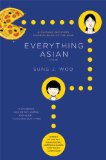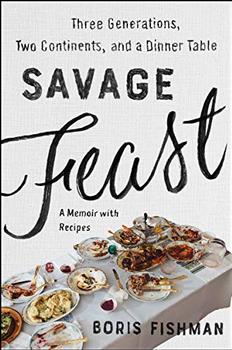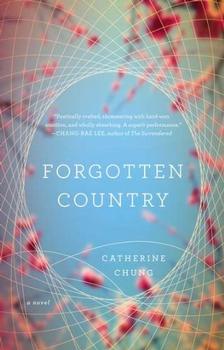Summary | Excerpt | Reading Guide | Reviews | Beyond the book | Read-Alikes | Genres & Themes | Author Bio

A Novel
by Sung J. WooWhen I glanced at the cover of Everything Asian,
which features a grinning adolescent Asian boy about
to devour a huge hamburger, I envisioned a book
about twelve-year-old David Kim's culture clashes as
a newly arrived Korean immigrant in the United States. I was right; the book is filled with Korean practices
juxtaposed against experiences in this country. But
it is a book overflowing with so much more than
that, too. Sung J. Woo writes not only from
David's perspective, but also from the standpoint of
the many characters David knows from the Peddlers
Town mall, the microcosm of America where the Kim
family's gift shop is located.
Holding an MFA degree from New York University, Woo
has published many of his essays and short stories
in The New York Times, KoreAm Journal,
and Storyglossia. His strength as a short story writer is apparent in this, his first novel. In a style similar to that of Maeve Binchy or Kate Jacobs, Woo carefully shapes each chapter as its own vignette, presenting a single character's experience as a
potentially stand-alone story, while at the same
time developing a seamless novel.
The first story opens from David's viewpoint as a
newcomer to Oakbridge, New Jersey, becoming
acquainted with the father he has not seen in years,
and dealing with his older sister's depression. The
next chapter moves to the sister's perspective as
she takes stock of herself. While studying old
school pictures, she recognizes her "tired,
sick-of-this-world face" and realizes, "Maybe it
wasn't this new country that made her miserable.
Maybe the misery had always been inside her." Each
chapter continues with the tender study of a
character connected to the Kims through Peddlers
Town.
In addition to telling stories about these
individuals, Woo also introduces some unique Korean
cultural aspects. For example, in the chapter "Go
Fish," David describes a hwat-toe deck of cards:
Unlike American playing cards, these rectangles were made from thin hard plastic sheets about half the size of business cards, but they were far prettier... each revealed a nature scene... The moon was worth twenty points, and if I held the card that featured the same hill but no moon, I could've taken it, but all I had were three scenes of wheat fields and a cardinal perched on a cherry-blossom branch.
Thanks to Woo's details, I could
envision the Kims' shop quite vividly, filled with
small lacquered, decorative tables; wooden chests
containing one hundred miniature drawers; and a
four-paneled mother-of-pearl plaque depicting the
four seasons.
Don't be surprised that the book ignores the
youthful angst of David's school experiences; this
novel is aimed at adult readers, although young
adults may become engrossed in it as well. Instead,
the stories revolve around the small world of
Peddlers Town and those who work there, ordinary
people at an unremarkable shopping mall who became
special to me as Woo unfolded their unique
struggles.
![]() This review was originally published in The BookBrowse Review in May 2009, and has been updated for the
August 2010 edition.
Click here to go to this issue.
This review was originally published in The BookBrowse Review in May 2009, and has been updated for the
August 2010 edition.
Click here to go to this issue.

If you liked Everything Asian, try these:

by Boris Fishman
Published 2020
The acclaimed author of A Replacement Life shifts between heartbreak and humor in this gorgeously told, recipe-filled memoir. A family story, an immigrant story, a love story, and an epic meal, Savage Feast explores the challenges of navigating two cultures from an unusual angle.

by Catherine Chung
Published 2013
Weaving Korean folklore within a modern narrative of immigration and identity, Forgotten Country is a fierce exploration of the inevitability of loss, the conflict between obligation and freedom, and a family struggling to find its way out of silence and back to one another.
We have to abandon the idea that schooling is something restricted to youth...
Click Here to find out who said this, as well as discovering other famous literary quotes!
Your guide toexceptional books
BookBrowse seeks out and recommends the best in contemporary fiction and nonfiction—books that not only engage and entertain but also deepen our understanding of ourselves and the world around us.